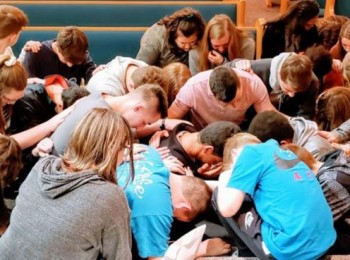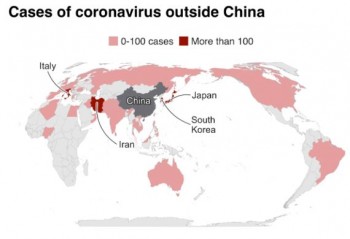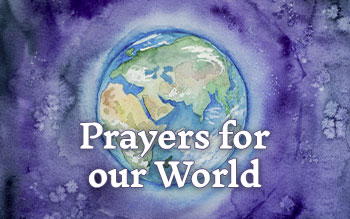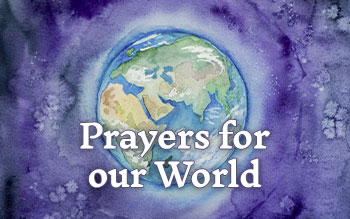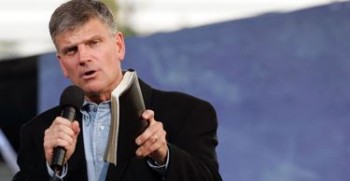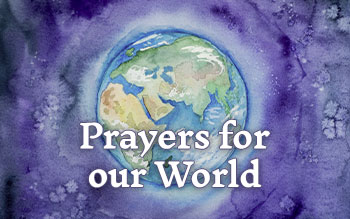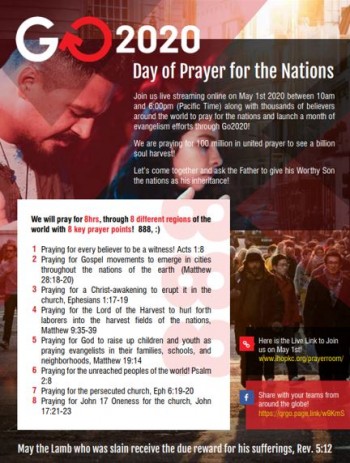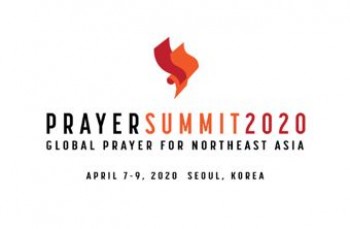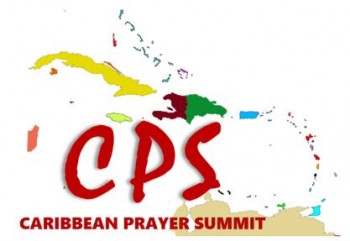
Super User
Lorem ipsum dolor sit amet, consectetur adipisicing elit, sed do eiusmod tempor incididunt ut labore et dolore magna aliqua. Ut enim ad minim veniam, quis nostrud exercitation ullamco laboris nisi ut aliquip ex ea commodo consequat. Duis aute irure dolor in reprehenderit in voluptate velit esse cillum dolore eu fugiat nulla pariatur
We are seeing an unprecedented outpouring in the worship and revival meetings in Rogersville, TN that began Sunday, February 2nd. Thus, we have kept these evening gatherings going... and we don’t know when they will end. We have mostly cleared our schedule, except for a few other scheduled events, to continue leading worship here as requested by the local leaders, including Pastor John Butler of East Rogersville Baptist Church where the meetings are being held nightly.
Each night we have continued because so many are coming to the altar weeping, repenting, and many getting saved, especially the youth and young adults, but sometimes the elderly, parents, and even the children!
The number of young people attending has at least doubled since we began, as we enter our 3rd week in this “awakening.” It's what we’ve prayed together for, for literally 40 years, and is truly a move of God, not anything anyone has done to contrive or manipulate. God is simply bringing deep conviction of sin, and revelation of His deep love and forgiveness! We are living our life-long dream… worshiping right in the middle of revival… though we know it is not because of us. This can only be a sovereign move of God, and by His grace, we get to be involved!...
In the meantime, please pray for these ongoing revival gatherings in Rogersville, TN, as wave after wave of churches and their people from all across this community are coming and getting right with God, repenting and receiving cleansing and deliverance in their lives from pornography, drug and alcohol abuse, bondages of bitterness and hatred toward parents or others in their lives, recognizing they are not really saved; plus a host of other convictions. Many prodigals and lukewarm Christians are coming home to Jesus and their “first love”, being set on fire for Jesus Christ again! It is not manufactured at all, and every night brings new dimensions of God's deep spiritual surgery in the hearts of the people. So far, at least 8 pastors and their people have been involved from Hawkins County (most of them had joined the Awaken Tennessee fast that goes from January 26th to February 23rd, 2020).
As state facilitators, we have distributed Dave Clayton's 'Awaken' fasting and prayer packets all across our state. Now, well over 1,000 churches are fasting together in 10 major cities or counties (600+ churches are in Nashville, and the rest of about 450+ churches, are being coordinated statewide by our Tennessee Prayer Coalition leaders who love, encourage, and help gather pastors and leaders in their regions to pray together for revival).”
Note of encouragement to pray for your own nation and city — There are other areas of our world also experiencing actual revival or signs of possible revival. Let’s pray that the Spirit of the Lord will fall all across all our nations and cities, and that we will see them shift to the Lord and His special purposes and destiny for each of them!
(Began Feb 2nd, 2020 to date) - Report by: Barbi & Terry Franklin, Feb 16th, 2020
As we are going to print, Dr Mike Ryan, the WHO’s director of health emergencies, has explained that the global risk level of "very high" is the highest alert the organisation can declare.
He said earlier that it would be "unhelpful" to declare a pandemic when the world was still trying to contain the virus.
"If we say there's a pandemic of coronavirus we're essentially accepting that every human on the planet will be exposed to that virus. The data does not support that as yet," he said.
The World Health Organization is disappointed that it cannot provide more protective equipment to medical workers because of a global shortage, Dr Michael Ryan told a news conference in Geneva.
Here is a summary of the latest situation:
- The World Health Organization upgrades the global risk from the coronavirus to "very high"
- Stock markets across the globe are suffering their worst week since 2008
- The first British death from Covid-19 is announced in Japan
- Nigeria and Mexico confirm their first cases
- China confirms another 327 cases - the lowest daily increase for a month - and 44 deaths, mainly in Hubei
- New Zealand, Belarus, the Netherlands, and Lithuania confirm first cases
New infections outside China top those within (see map image)
Almost 80,000 people in China have been infected with the coronavirus - known officially as Covid-19 - since the virus's discovery in the city of Wuhan, Hubei province, in December.
Although the vast majority of cases of the respiratory infection, which causes pneumonia-like symptoms, remain in China, the virus is now spreading faster outside the country than inside.
The three biggest international outbreaks detected so far have been in South Korea, with more than 2,000 cases, on board the British-registered Diamond Princess cruise ship docked in Yokohama, Japan, which has seen more than 700 people infected, and Italy, with more than 640 confirmed cases.
The virus has pandemic potential
The jump in the number of daily confirmed cases internationally has raised fears the outbreak could become a pandemic - when an infectious disease spreads easily from person to person in many parts of the world.
The spread has reached a "decisive point" and has "pandemic potential", WHO head Dr Tedros Ghebreyesus says.
The US has declared the outbreak a public health emergency, the UK has deemed it a "serious and imminent threat" to public health and Japan has closed all its school
Medical researchers and scientists say it is too early to accurately predict how the virus will spread or calculate the death rate, partly due to mild cases remaining untested and unrecorded and a time lag of reporting infections.
As there is not yet a specific anti-viral treatment for coronavirus, people with the infection are currently being treated for their symptoms.
By Lucy Rodgers, Mike Hills, Dominic Bailey and Wesley Stephenson
More at: https://www.bbc.co.uk/news/topics/cyz0z8w0ydwt/coronavirus-outbreak
Pray: for all those affected by this as-yet not fully understood strain of the Coronavirus.
Pray: that the spread of the virus will be contained. Pray: that the economic impacts will be minimised.
Pray: for wisdom and insight for the medical researchers who are seeking both to build their understanding of the virus and the way that it mutates and to identify an effective inoculation and treatment.
NEW DELHI: Tensions remained high in India's capital on Thursday (Feb 27), as thousands of riot police and paramilitaries patrolled streets littered with the debris from days of sectarian riots that have killed 38 people.
An uneasy calm has descended over the affected northeast fringes of the Indian capital, punctuated by sporadic outbreaks of violence overnight.
The unrest was the latest bout of violence over Prime Minister Narendra Modi's citizenship law, which triggered months of demonstrations that turned deadly in December.
India's parliament has passed a bill which offers amnesty to non-Muslim illegal immigrants from three neighbouring countries. The bill provides citizenship to religious minorities from Pakistan, Bangladesh and Afghanistan.
The government, led by the Hindu nationalist Bharatiya Janata Party (BJP), says this will give sanctuary to people fleeing religious persecution. Critics say the bill is part of a BJP agenda to marginalise Muslims.
The Citizenship Amendment Bill (CAB) passed the upper house of parliament, where the BJP lacks a majority, by 125 votes to 105 on 11 December. It had cleared the lower house two days earlier.
The bill has already prompted widespread protests in the north-east of the country which borders Bangladesh, as many people there say they will be "overrun" by immigrants from across the border.
Sunil Kumar, director of the Guru Teg Bahadur (GTB) Hospital, said on Thursday it had registered 34 deaths, adding that "all of them had gunshot injuries".
Many of India's 200 million Muslims fear the citizenship law - combined with a mooted citizens' register - will leave them stateless or even sent to detention camps. They and critics see Modi's right-wing ruling party, which is linked to once-banned militaristic Hindu group RSS, as wanting to turn officially secular India into a Hindu nation.
His party has denied the allegations but in recent weeks BJP politicians, including in an ugly recent campaign for Delhi elections, have called the demonstrators "anti-nationals" and "jihadists".
The Evangelical Fellowship of India in a statement said: 'The Christian community in India, and especially in the Delhi region, is deeply shocked and pained at the bloodshed, carnage and mayhem let loose on the streets, homes and mosques of the national capital. The Evangelical Fellowship of India condemns this reprehensible violence that has so far resulted in 23 deaths, as the work of vested political interests and forces of hate.
'We appeal to the people of Delhi to maintain peace, and not to give in to vicious vitriolic fed by rumors and spread through social media. We must not let hate win.
'EFI calls the Church at large to uphold the people of Delhi in our prayers. This Ash Wednesday, as we begin the season of Lent, let us pray for peace and harmony to prevail in our land, and for violence to cease.
More at: https://www.channelnewsasia.com/news/asia/tensions-high-in-new-delhi-as-death-toll-from-sectarian-riots-12478078 More at: https://www.bbc.co.uk/news/world-asia-india-50670393
More at: http://efionline.org/articles/350/20200226/efi-statement-on-the-violence-in-delhi.htm
Malaysia, a beautiful nation in SE Asia, is in political crisis as the government coalition came apart on 22nd February weekend. The King has interviewed Members of Parliament to find out where they stand and consider whether to call a snap election to form a new government.
Concerns are that it could open the back door for the old, oppressively corrupt regime to come back to power. The timeline of this developing situation to date is summarised in this graphic.
As we go to print, we are hearing that Malaysia's Parliament will not hold a special session on Monday 2nd March to decide the next prime minister, the country's monarch announced, a day after interim Prime Minister Mahathir Mohamad said the legislative body would do so.
The king made the declaration on Friday, as Mahathir's own party, Parti Pribumi Bersatu Malaysia, made a surprise announcement that it has nominated party president, Muhyiddin Yassin, as its candidate for prime minister.
With the latest development on Friday, it is now unclear what role the 94-year-old Mahathir would play as chairman of the party, also known as Bersatu. Earlier, the party had said that it wants Mahathir to continue as prime minister.
On Thursday, Mahathir had announced that there will be a special session of parliament on March 2 to select the new prime minister. He also said that if there is enough support for him, he will stay on as prime minister.
But the announcement on Thursday angered his former coalition allies, led by Anwar Ibrahim, who said it was inappropriate for him to pre-empt a decision by the king, whose powers would be challenged by a vote in parliament. The coalition had earlier nominated Anwar as prime minister.
On Friday, the parliament speaker, Mohamad Ariff Md Yusof, also contradicted Mahathir, saying that a special session can only be declared through an official decree by the king.
Please pray with our brothers and sisters in Christ there that the King will do the right thing, that the nation will be protected from corrupt rulers returning, and that a new government coalition will be formed that is representative of the diverse racial groups of the nation and broadly accepted to take the nation forward for the good of all.
Here are a few prayers from local believers:
In the Name of Jesus, we declare that the government of Malaysia will rest on the shoulders of our Lord Jesus Christ! And His name will be called:
Malaysia’s Wonderful Counsellor, Malaysia’s Mighty God, Malaysia’s Eternal Father, Malaysia’s Prince of Peace!
There will be no end to the increase of His government or of peace over our nation.
Jesus Christ is enthroned forever, among us, to restore sound leadership that cannot be perverted or shaken.
He will ensure justice without fail and absolute equity. Always.
The intense passion of the Eternal, Commander of heavenly armies, will carry this to completion. (Isa.9:6-7)
Father God, we declare Your Word over Malaysia:
Blessed are those of our politicians who follow God’s ways, who won’t walk in step with the wicked nor share the
sinner’s way, nor be found sitting in the scorner’s seat. (Ps.1:1)
Blessed are those of our politicians who act with justice, love to show mercy and are humble as they live in the sight of God. (Micah 6:8)
The godly politicians in our land are like trees planted along the riverbank, bearing fruit each season. Their leaves never wither, and they prosper in all they do. (Ps.1:3)
Amen
A prayer letter from a family and team laboring in Iraq in such a time as this.
We are honored to reap what we and others have sown in this field. In recent weeks Muslims who have recently come to faith have joined our church community. Our team is actively spending time with these new believers to disciple them not only with the word but with our lives as well.
House Church Meetings and Teaching Seminars
In our house church gatherings we have increased our time of teaching the Word, praying, worshiping and waiting on the Lord together. We are currently studying the book of Acts. Every month we are also hosting all day seminars teaching the Scriptures to our church community who are believers saved from Islam. In these seminars we are using the three main aspects of what Paul unveiled in his letter to the church in Rome how he brought the Gentiles over to God.
‘Yet I dare not boast about anything except what Christ has done through me, bringing the Gentiles to God by my message and by the way I worked among them. They were convinced by the power of miraculous signs and wonders and by the power of God’s Spirit…’ Romans 15:18-19 (NLT).
From the three main aspects that Paul showed us, we are focusing our classes of teaching on
- the Message of the Gospel of the Kingdom;
- Character;
- Faith and the Miraculous.
Sharing the Gospel on the Streets with Muslim Background Believers (MBBs)
There are many challenges discipling new believers saved out of Islam in Iraq. Persecution from family, relatives, their tribe and at their work places is a normal occurring thing in Iraq.
However with the challenges comes joy, lasting fruit and Christ receives much glory. One of the joys of discipling “MBBs” is evangelizing Muslims on the streets of Iraq together with them. These new disciples become spiritually stronger when they share their testimony and the gospel to other Muslims. One of the ways fear is overcome, is by courageously sharing the gospel with the lost.
Cold Winter - Distribution of Kerosene to Syrian Refugees
Winters in Iraq are cold. The temperatures can dip down into the 20s. With the financial gifts that you gave we were able to distribute cans of kerosene, which they use to fuel their heaters, to 100 poor Syrian refugee families.
Prayer Gatherings in Iraq this year
The dates for the 50 Hours of Worship and Prayer are April 23-25 and the dates for the 100 hours of worship and prayer are October 27-31.
Quote of the month:
“Persecution does not take us away from our home. Persecution helps send us along the way to our true home.” Pastor JC
Praise Report
- In recent weeks more Muslims have come to faith and joined our church community.
- Disciples are being made, taught the Scriptures and going out on the streets to evangelize other Muslims.
- Prayer gatherings are planned for this year.
Prayer Requests
- The Holy Spirit’s power to find the men and women of peace and build the church in Iraq.
- Pray for the new believers saved out of Islam that Christ may be formed in them.
Thank you for your love for us and your prayers
In this feature article, Jason Mandryk from Operation World, also a member of the IPC’s Leadership Team unpacks a number of growing issues affecting the United Kingdom that have been highlighted by Franklin Graham’s planned evangelistic visit.
A number of secular UK venues have refused to host Graham’s events.
While the flooding and inexorable spread of CoVid into the U.K. hold the attention of most of us here, the reaction to the planned Franklin Graham tour should not go unnoticed. All of the original venues booked to host Graham’s preaching tour have cancelled, after numerous complaints of the American preacher’s alleged homophobia, Islamophobia, and right wing politics.
A Creeping Prejudice
We are seeing the accelerating trend of Christians being the ones against whom such discrimination is happening. Some have argued convincingly that the cancellations of venues on Franklin Graham’s crusade are examples of such discrimination, and of violations of religious freedom/free speech. Can there truly be free speech when a self-labeled ‘inclusive’ worldview bans people who have convictions different from their own? When we (in this case, Christianity in a nation with centuries of having a state-sponsored Church) are no longer the bully but the bullied, there is a powerful cognitive dissonance. This is happening, not just in the U.K., but across much of the English-speaking world.
Christians in the U.K. should be alarmed at the rapidity of this reversal, and indeed the willingness – eagerness even - of secular society to look the other way, or to pile on, when it’s Christians suffering discrimination. History has taught us, that when these things turn, they often turn fast.
Astute observers will also have noted that there has been a rapid tonal shift from the LGBTQ+ activists. Only a few years ago, such activist groups were pointing out cruel violence and persecution against a small minority, and asking to be allowed to simply exist, to be left alone, to be accepted for who they were. Today, entities like Stonewall and PinkNews are on the offensive. They demonstrate no mercy to those who do not agree to their manifestos. Savvy manipulation of our media and of outrage/victim culture, the weaponization of vocabulary and of Karl Popper’s “Intolerance Paradox” are just some of the tools of the trade.
How, then, do we respond? Well, tens of millions of Christians who have lived in countries with fundamentalist Muslim, Hindu or atheistic governments are deeply familiar with the experience of persecution and of suffering at the hands of an intolerant majority. Some have endured for generations, or even centuries, in these contexts. It may be that in the years to come we will have much to learn from these brave sisters and brothers in Christ. It may be that our recourse to lobby groups, legal actions, and culture wars will be exposed as fruitless. It is likely that our most important lesson will be to learn how to turn the other cheek, and how to love our enemies and pray for those who persecute us (Matt 5:44). Jesus did promise his disciples, “you will be hated by all nations for my name’s sake” (Matt 24:9).
However, the disruption to Franklin Graham’s intended crusade cannot be laid entirely at the feet of those who oppose his visit.
Franklin Graham is not his father
There are two important aspects to Franklin Graham’s approach that are worth noting. Firstly, how the two men made their choices about where and when to do preaching tours differs. Church of England ministers Ian Paul and Paul Eddy write about how Billy Graham “would only go preach in cities after considerable prayer, and after invitations from a wide spectrum of churches in those cities.” An admirable, spiritual, consultative process! The article goes on to explain that the Billy Graham Evangelistic Association (BGEA) no longer operate that way. It appears that Franklin Graham’s decision to come to the U.K. was a private decision between him and God, rather than a relational process involving the U.K. church. The lack of an outcry about the cancellations by the U.K. church is hardly a surprise, then.
Public politics is another issue where the two Grahams significantly differ. One of the hallmarks of Billy Graham’s preaching is that he focused on the gospel. Billy learned to avoid most politics and kept the main thing, the main thing (after well-publicized and painful lessons through his relationship with Richard Nixon). It is a part of why he had the respect of and access to so many communities and leaders around the world. Who else could have had the chance to share his faith personally with everyone from Queen Elizabeth to Johnny Cash to Martin Luther King Jr. to Kim Il Sung to the King of Jordan?
Politics and religion
Regardless of whether you agree with his convictions or not (and he makes no bones about hiding them), it is undeniable that Franklin Graham has very deliberately chosen to mix his politics with his faith. This politicization of religion is controversial enough in America; it sits less well in a Europe that suffered through some incredibly destructive religious wars before the USA even existed. In addition to his right wing politics, Franklin Graham has also been outspoken on his views about LGBTQ+ and on Islam – two already charged issues.
Franklin Graham is certainly entitled to air his views, and the truth is that many faithful Christians in Europe will actually agree with most of them. Yet there needs to be a recognition that the European context, and specifically the U.K. context, requires its own approach for evangelists, especially for high profile ones. One size never fits all when it comes to spreading the good news of Jesus cross-culturally. This is lesson number one for all aspiring missionaries! You wouldn’t try to evangelize a Muslim while eating a pork sausage and drinking a beer, after all. Europe is profoundly different from America, and our evangelism must reflect that. Remember, this is a Europe that has endured centuries of deep antipathy between religious powers, the spiritual baggage of state churches, and the trauma of state-sponsored atheism.
Franklin promised to focus on the gospel in his evangelistic endeavours in the U.K., and I have confidence that he would keep his word if he gave it. He is a gifted evangelist when he preaches the good news. However, the unfortunate truth is that Graham’s evangelistic platform – in Europe, at least – will never be free from the impact of his very public politics. It appears that influential groups in the U.K. are intent on letting Franklin Graham know that they consider him a homophobic, Islamophobic, right wing, Trump-idolizing crackpot and if that’s the Jesus he offers, then thanks-but-no-thanks.
Europe - white unto harvest?
Yet, the U.K.’s reticence to welcome Franklin Graham’s own crusade should not be associated with a rejection of the gospel of Jesus Christ. True, the fires of religious fervour burn most weakly in Europe among all continents. However, for a number of years, missionaries, ministers, and youth workers in “the prodigal continent” have been saying that there has been more openness to the person of Jesus and the work of the Holy Spirit – especially among the younger generation – than there has been in a long time. This is not even including the many on-fire migrant churches from Africa, Latin America, and Asia, nor the spiritually hungry and desperate migrant populations from places like Afghanistan and Iran (oddly enough, all the above are the groups most likely to resonate with Franklin Graham’s particular blend of religion and politics!) In many places in Europe, the spiritual harvest is ripe. Many who live on this continent will question, though, whether an American mass evangelist with conspicuously right wing politics is going to be the most effective worker in that harvest field.
Franklin Graham has stated that he intends to come to the U.K. anyway. I am glad that my brother in Christ is not cowed into cancelling his campaign simply due to the cancellation of public venues. We can all hope that his visit brings much spiritual fruit, even if the venues are churches instead.
How can we pray?
Pray that U.K. Christians would become aware of the accelerating secularization happening in their midst – not to engage in fruitless culture wars, but to redouble their efforts to fearlessly share the good news of Jesus, no matter the consequences.
Pray that the schemes of the enemy to attack the body of Christ and to degrade British society would be exposed. The devil prefers to fight dirty. May the people of Jesus wage war in the spirit of Jesus, who sent His disciples out “as lambs among wolves”.
Pray for great wisdom, discernment, and humility for public Christian figures in the U.K. This includes people like Anglican Archbishop Justin Welby, Evangelical Alliance CEO Gavin Calver, British evangelist J. John, and even visitors like Franklin Graham.
Pray, as always, for a spiritual awakening in this nation with a history of spiritual awakenings. The U.K. needs revival on the scale of the Wesleyan or Welsh revivals. May the Holy Spirit pour Himself out on His people once again!
Join the discussion at www.ipcprayer.org
The locusts are swiftly breeding and their numbers could increase 400-fold by June if the infestation is left unchecked, the UN has warned.
Countries in East Africa are racing against time to prevent new swarms of locusts wreaking havoc with crops and livelihoods after the worst infestation in generations.
A lack of expertise in controlling the pests is not their only problem: Kenya temporarily ran out of pesticides, Ethiopia needs more planes and Somalia and Yemen, torn by civil war, can't guarantee exterminators' safety.
Locust swarms have been recorded in the region since biblical times, but unusual weather patterns exacerbated by climate change have created ideal conditions for insect numbers to surge, scientists say.
Warmer seas are creating more rain, wakening dormant eggs, and cyclones that disperse the swarms are getting stronger and more frequent.
In Ethiopia the locusts have reached the fertile Rift Valley farmland and stripped grazing grounds in Kenya and Somalia. Swarms can travel up to 150 km (93 miles) a day and contain between 40-80 million locusts per square kilometre.
If left unchecked, the number of locusts in East Africa could explode 400-fold by June. That would devastate harvests in a region with more than 19 million hungry people, the U.N. Food and Agriculture Organization (FAO) has warned.
Uganda has deployed the military. Kenya has trained hundreds of youth cadets to spray. Lacking pesticides, some security forces in Somalia have shot anti-aircraft guns at swarms darkening the skies.
Everyone is racing the rains expected in March: the next generation of larvae is already wriggling from the ground, just as farmers plant their seeds.
"The second wave is coming," said Cyril Ferrand, FAO's head of resilience for Eastern Africa. "As crops are planted, locusts will eat everything."
The impact so far on agriculture, which generates about a third of East Africa's economic output, is unknown, but FAO is using satellite images to assess the damage, he said.
PESTICIDE SHORTAGES
This month, Kenya ran out of pesticide for about a week and a half, he said. Farmers watched helplessly as their families' crops were devoured. In Ethiopia, the government can only afford to rent four planes for aerial spraying, but it needs at least twice that number to contain the outbreak before harvesting begins in March, Zebdewos Salato, director of plant protection at the Ministry of Agriculture, told Reuters. "We are running out of time," he said.
Meanwhile, locusts - which have a life cycle of three months - are breeding. FAO says each generation is an average of 20 times more numerous. When eggs hatch, as they are doing now in northern Kenya, the hungry young locusts are earthbound for two weeks and more vulnerable to spraying than when they grow wings.
After that, they take to the air in swarms so dense they have forced aircraft to divert. A single square kilometre swarm can eat as much food in a day as 35,000 people. FAO said containing the plague will cost at least $138 million. So far, donors have pledged $52 million. Failure means more hunger in a region already battered by conflict and climate shocks.
Since 2016, there have been droughts in Kenya, Somalia, Ethiopia, then floods, Ferrand said. In South Sudan, more than half the population already faces food shortages.
By Omar Mohammed and Dawit Endeshaw
More at: https://news.trust.org/item/20200227122340-3t5r8
Pray: that sufficient resources, pesticides and planes will be made available to tackle this problem before it escalates or spreads further.
Pray: for a divine intervention that will stop the breeding and spread of these swarms in their tracks.
Pray: into this prophetic word from David Sseppuuya that these nations will seek repentance that will lead to restoration.
Pray: for the Church to rise up in these countries and to take a spiritual lead. (Joel 2:15-17)
An Invitation to Transforming our World through United Prayer and Mission!
The early church turned the world upside down when, following Jesus’ command, they stayed in Jerusalem and “joined constantly together in prayer”. This culture of united prayer enabled the believers to receive the empowering of the Holy Spirit and ignited remarkable spiritual breakthroughs as the Gospel began to spread throughout their world. This same pattern of prayer preceding evangelism has been a consistent pattern in all the great revivals and mission advances from then on through church history.
Now, tens of thousands of churches with hundreds of mission organizations and prayer movements are joining forces for an epic prayer and mission initiative unlike anything our world has known. The goal is to reach one billion who are still unreached by Christ’s Good News. Together, by May 2020, we aim to mobilize 100 million Christians to pray for those in their communities that do not know the Lord as well as those across the seas that are part of unreached people groups. No one organization or movement can accomplish such a staggering feat, but if we flow together like tributaries in one unstoppable river, this can be achieved! Getting God’s heart of love for the lost through prayer will lead to our sharing Jesus with them in the power and sensitivity of the Holy Spirit just as the early church experienced.
Would you please consider joining with us in such an awesome undertaking for His glory and so that everyone may hear? Together, as we pray, mobilize, and trust the One who has all power, we can see the following happen by the end of May 2020:
- One billion people being reached with the Gospel and millions upon millions getting saved all over the world through May 2020.
- Unreached people groups hearing the Gospel for the first time and planting new churches among them.
- 100 million Christians inspired and empowered by the Holy Spirit to pray and share the Gospel with as many as possible in their own communities and to the ends of the earth.
- 50 million new believers integrated into existing and new churches.
Action steps:
- Personal Prayer: Lord here I am, use me! I will pray for and share the Gospel with others who need to hear it. https://www.go2020.world/get-involved
- A suggested five-fold strategy to mobilize believers for prayer and outreach is described in this four-minute video. GO2020 video: https://vimeo.com/342384375
- The brochures can also be used to give others the vision of Go 2020 (some translations and more resources are available at www.go2020.world/prayer
- All through 2020, a series of 40-day prayer guides will help us pray daily for those still unreached and for the harvest to be brought in. The March / April theme is LABORERS for the HARVEST:
Download the GO2020 Global Daily Prayer Guides HERE www.ipcprayer.org/go2020 - Do join us and hundreds of thousands of believers around the world for an online global Prayer Meeting on 1st May 2020 between 10am and 6pm Pacific Time!
Prayer Room Link: www.ihopkc.org/prayerroom/
Download the flyer: http://ipcprayer.org/images/GO2020%20Flyer%20Web.pdf
More info and sign up HERE www.go2020.world
John Robb, Chairman, International Prayer Council
& Go 2020 Prayer Mobilization Task Force
Prayer Summit 2020
Global Prayer for Northeast Asia
Dear Delegates,
It is with much deliberation and prayerful consideration that the Prayer Summit Organizing Team would
like to announce the CANCELLATION AND POSTPONEMENT of the Prayer Summit 2020 from April 7-9 in
Seoul, Korea.
This comes in view of the COVID-19 outbreak, and the South Korean government has raised the alert to
Level 4, or "serious," advising deep caution and restriction in travels within and out of the country.
The delegates' and volunteers' well-being and safety are of utmost importance as well as being in tune
with how the Lord is steering us. The leaders and organizers convened over the span of a few days to
deliberate and pray, and we felt this was the best call to make at this point.
In light of this cancellation, the Prayer Summit Committee will give a FULL REFUND to all who have
signed up and paid for the conference fee. We sincerely apologize for the inconvenience and disappointment caused, and thank you for your gracious understanding.
We will soon post the updated dates for the Prayer Summit 2020.
Please contact us at This email address is being protected from spambots. You need JavaScript enabled to view it. should you have any further inquiries.
In this challenging time, we request for your prayers. We believe that the Lord has much good planned in this situation.
For His Kingdom,
Sarah Lee
Prayer Summit 2020 Organizer
Christian Council of Korea, Co-Chair
Website: www.prayersummit2020.com
Contact: This email address is being protected from spambots. You need JavaScript enabled to view it.
Greetings from the secretariat of the Caribbean Prayer Summit. We are excited about hosting the 4th Caribbean Prayer Summit (CPS) on May 21-24, 2020 at the all-inclusive Hilton Rose Hall Hotel, Montego Bay under the theme “A United Caribbean Church …a Regional Revival”.
Since its inception the CPS has been convened in Barbados (2007), Suriname (2008) and Jamaica 2009. The CPS was initiated by the International Prayer Council through Rev Maria Harbajan, their Caribbean Coordinator and Representative.
We believe that intercessory prayer changes things and in light of the myriad of issues facing the region at this time, including the challenges facing CARICOM, the CPS aims to target Intercessory Prayer leaders throughout the region and beyond with the following objectives:-
- To provide a forum for the networking of Intercessory Prayer leaders across the Caribbean – no island is to stand alone in its spiritual war
- Strategic planning for the setting up of National Prayer Networks on islands where there might not be any in place – every island needs one
- To have the island representatives present the most critical needs of their nation and have the regional gathering uphold them/their nation in corporate intercession and spiritual warfare – together we will win the war
- Development of links, networks, and initiatives in the region; exposing what already exists – exposing opportunities available for training; impartation.
- To encourage the Caribbean youth and children to become more involved in intercession – raising up Millennials to be powerful and effective in prayer.
- To introduce the concept of a day of National Repentance to be presented to Governments and assist in having it executed in all the islands of the region.
We would be happy to have you join us for this historic occasion. Please view this as our invitation to you and/or at least one other Intercessor who could represent your nation at the Summit. We also invite you to consider staying at the Summit venue in order to facilitate fellowship over meals, continuous interaction and networking with fellow delegates from across the region.
Regular Registration (Adult) US$99.00
To register you may visit our website at www.caribbeanprayersummit.org or contact the Secretariat by email at This email address is being protected from spambots. You need JavaScript enabled to view it.
Alternatively, you may call (876) 398-2299 between the hours of 10:00 am and 3:00 pm. Also, we will be creating a WhatsApp group for the flow of continuous information to all our delegates and to facilitate questions and answers (Q & A) that will benefit all who will be in attendance. Please let us know if you do not wish to be added to such a group.
Sharon Hermitt/Secretary (for)
Rev. Maria Harbajan
CPS Convener/Member, CPS Secretariat
Member, International Prayer Council
www.caribbeanprayersummit.org
